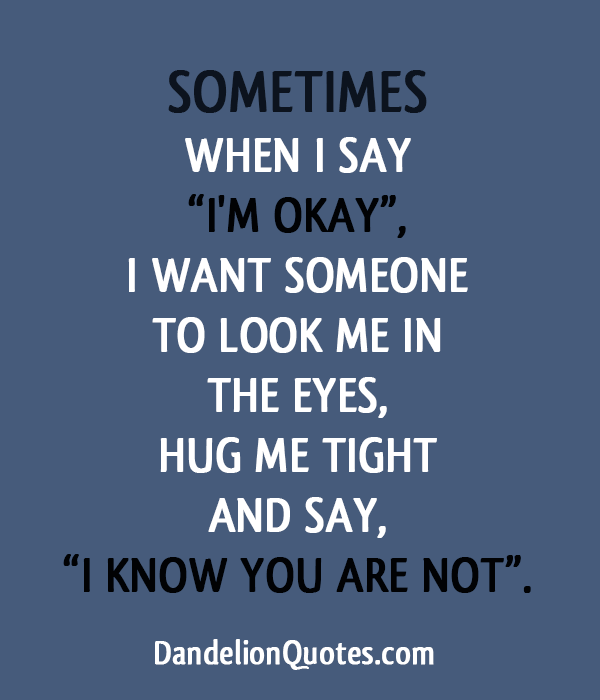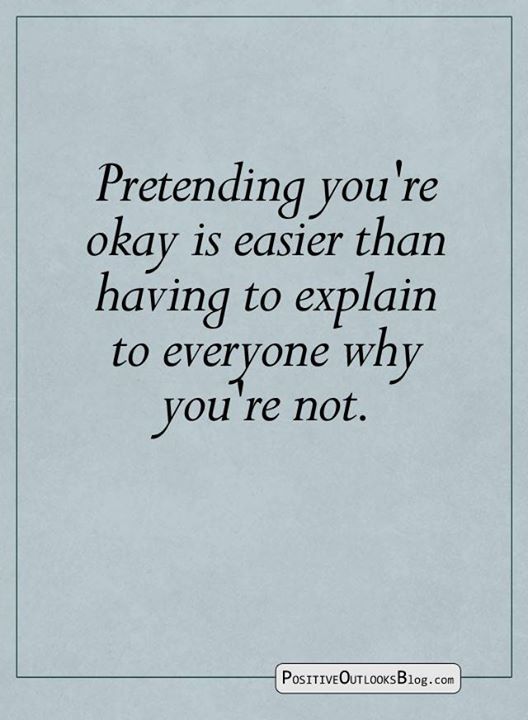We often hear the phrase “Are you okay?” as a way to check in on someone’s emotional state. While it comes from a good place, it might not always feel right or sufficient. Sometimes, our friends or loved ones are going through complexities that a simple query can't capture. In this blog post, we’ll explore why this phrase can fall short and what alternatives can foster deeper, more meaningful conversations.
The Limitations of the Phrase Are You Okay

Asking “Are you okay?” is often the go-to question when checking on someone. However, it comes with several limitations that can hinder genuine connection. Here’s why:
- Surface-Level Inquiry: The phrase tends to scratch the surface of someone’s feelings. It’s easy for people to respond with a quick “I’m fine” even when they’re not.
- Emotional Complexity: Emotions can be complicated. Someone may feel a mix of happiness, sadness, anger, or confusion, making it hard to summarize their state with a simple “okay.”
- Social Conditioning: Many people have been socialized to say they’re fine, regardless of their actual feelings. This makes the question feel more like a formality than a genuine concern.
- Pressure to Respond: The question can create pressure to provide a satisfactory answer. People may feel they need to justify their feelings or may fear judgment.
In light of these limitations, it’s essential to consider alternative approaches. For instance, asking “How have you been feeling lately?” can invite a richer conversation, allowing for more honest and open dialogue.
In conclusion, while “Are you okay?” is well-intentioned, recognizing its limitations can help us connect more deeply with those we care about.
Also Read This: Steps to Gently Ask a Friend If They Are Okay Without Pressuring Them
Alternative Questions to Show Genuine Concern

Sometimes, asking "Are you okay?" just doesn't cut it. It's a common phrase that can feel too generic, especially when someone is struggling. To show genuine concern, consider using questions that delve deeper and acknowledge the person's feelings. Here are some alternative questions that can spark more meaningful conversations:
- How have you been feeling lately? - This open-ended question invites the person to share their emotions without feeling pressured.
- What’s been on your mind? - A great way to encourage someone to discuss their thoughts and worries.
- Is there anything you want to talk about? - Offering a safe space for them to express themselves can be incredibly supportive.
- How can I help you right now? - This question shows your willingness to support them actively.
- What do you need from me? - It emphasizes that you're there to listen and assist in whatever way they need.
By using these alternative questions, you can create an environment that promotes openness and understanding, helping your loved ones feel heard and valued.
Also Read This: Why OK.ru Is the Perfect Hub for Local and Global Communities
How to Express Understanding and Empathy

Expressing understanding and empathy goes beyond just asking the right questions. It's about creating a connection that makes the person feel seen and supported. Here are some effective ways to convey empathy in your conversations:
- Listen actively: Show that you’re engaged by nodding, maintaining eye contact, and responding appropriately to their feelings.
- Reflect back what you hear: Use phrases like, “It sounds like you’re feeling…” to validate their emotions.
- Share similar experiences: If appropriate, briefly share a similar situation to show you can relate, but keep the focus on them.
- Use validating statements: Phrases like “That makes sense” or “I understand why you feel that way” can go a long way in making someone feel understood.
- Encourage them to express themselves: Let them know that it’s okay to share whatever they’re feeling, no matter how heavy it might be.
Empathy is about connection. The more genuine and open you are, the more likely the other person will feel comfortable sharing their feelings with you.
Also Read This: Why Is There a Green Mark on OK.ru Videos? Here's the Explanation
When to Seek Professional Help

Sometimes, the struggles we face can feel overwhelming, and it might seem like a simple "Are you okay?" doesn't quite capture the depth of what we're experiencing. Recognizing when to seek professional help is a crucial step in navigating tough times. Here are some indicators that it might be time to reach out:
- Persistent Feelings: If feelings of sadness, anxiety, or emptiness linger for weeks or months, it’s important to talk to someone who can help.
- Impact on Daily Life: Are your emotions affecting your work, relationships, or daily activities? If you find it hard to get out of bed or concentrate, consider professional guidance.
- Substance Use: If you’re turning to alcohol, drugs, or other substances as a way to cope, this is a signal to seek help.
- Thoughts of Self-Harm: If you have thoughts of hurting yourself or feel hopeless, please seek immediate help from a mental health professional or a crisis hotline.
- Support from Friends and Family: Sometimes, friends and family might express concern about your well-being. If they notice changes in your mood or behavior, this feedback can be crucial.
Remember, seeking help is not a sign of weakness; it’s a courageous step towards healing. Therapists, counselors, or support groups can provide a safe space to explore your feelings and develop coping strategies.
Conclusion
In a world where we often ask "Are you okay?" out of habit, it’s essential to recognize when that question doesn’t quite hit the mark. Mental health is complex, and sometimes we need deeper connections and understanding. Instead of defaulting to surface-level inquiries, consider asking more specific questions that invite open conversation, such as:
- “What’s been on your mind lately?”
- “How have you been feeling overall?”
- “Is there anything you’d like to talk about?”
By fostering a space for genuine dialogue, we can support our loved ones better and create an environment where they feel safe to share. Remember, it’s okay to not be okay, and sometimes, the best thing we can do is simply listen and be there for each other. Let’s strive to communicate more authentically and compassionately, paving the way for healing and understanding.
 admin
admin








